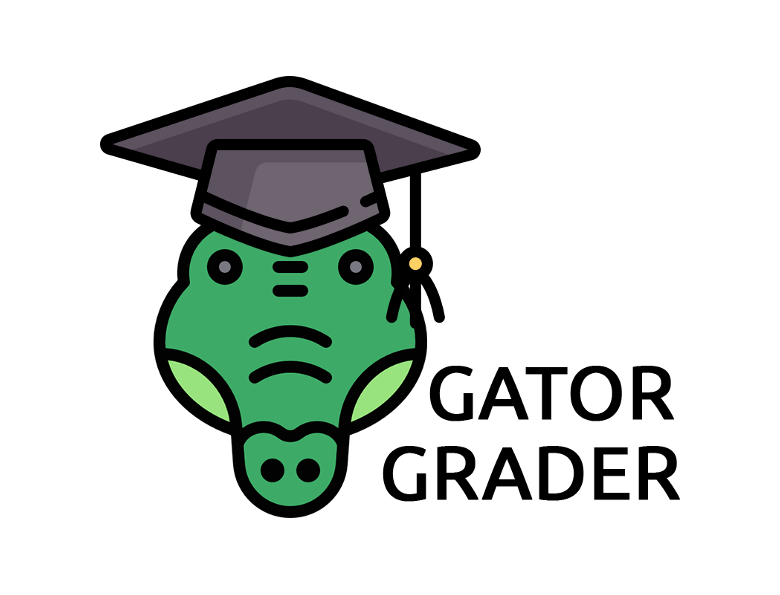In the early half of my final semester at Allegheny College, I had the opportunity to work on a project called GatorGrader. GatorGrader, a tool designed to help students know when they have satisfied the requirements of a given lab assignment on GitHub, is an open-source software developed by students at Allegheny College. You can check out the project here, and you can read on to hear my personal reflection of my work on the system as part of the Software Innovations course.
At the start of the semester, I was more or less shoe-horned into a Team Leader position for a team of 5 other developers and myself. At the outset, we had little direction as our task was, in essence, “expand upon this existing code base.” To begin this, we dove headlong into the Issue Tracker and started selecting issues to solve. The other Team Leaders and I took up some of the basic issues tagged “Good First Issue,” and made a plan of action for the first major issues we would all tackle. My team had worked with another team on completing a task wherein we had to implement an Abstract Syntax Tree (AST) to determine paragraphs in Markdown documents for the purpose of checking a minimum paragraph length.
While this task sounded daunting, my team did not directly implement the AST.
Rather, we performed the viability research, created sample documents for
testing the tools we had found during our research, and, when the other team
actually implemented the AST, we wrote the automated test cases for them using
the pytest Python library for automated unit testing.
Our viability research pointed us to several tools. The first of such tools that we found was CommonMark, which we ultimately ended up using for the implementation. We then had to consider how we would parse the data gathered by CommonMark, which lead us into a discussion revolving around tools such as glom, a tool for parsing data sets of any size, or a tool like JQ which does similar things with JSON files. In the end, we ended up using what came the AST interfact through the CommonMark-py library.
Once we figured out what we were doing, and the other team we worked with actually implemented the AST into the GatorGrader system, my team worked to create a comprehensive set of test cases for making the sure the implementation of the AST was behaving as expected. We considered many facets, such as whether or not a multi-line code block would break a paragraph into two different paragraph nodes, if any fragment would do the same, how different fragments counted towards word counts, and so on. Once we established the possible scenarios, we divided the test cases over our six team members, and implemented the test cases as such.
After that, we as a team needed to find new issues to work on. Rather than working with other teams to divvy up the work, though, the teams all took a more free-for-all approach to tackling issues in the Issue Tracker. Our team ended up working on making sample repositories for the purpose of testing the GatorGrader system on repositories with code in different programming languages, as well as provide starter repositories for instructors who are teaching using those languages. I personally developed the sample repository for using GatorGrader on a C++ programming language assignment, which you can find here.
All in all, working on GatorGrader was a fun way to get experience leading a team and working on tackling issues for an existing software project on GitHub. In the future, I am excited to learn more about creating software from scratch, which was the premise of the second long-term software project that I worked on for my Software Innovations course in my last semester here at Allegheny.
